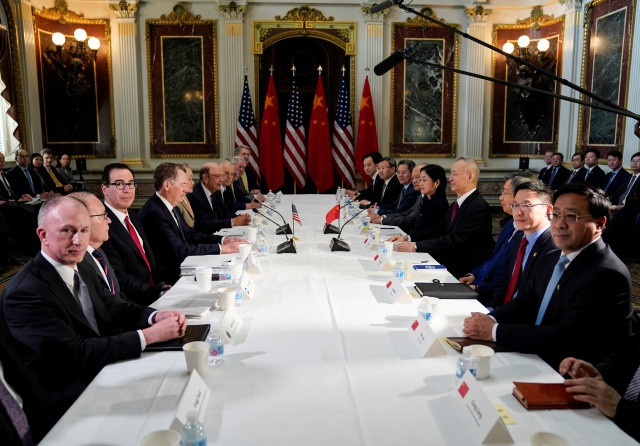China and the U.S. meet again to resume trade talks and resolve the conflict that has shook up the global economy. The former opened the trade talks on Thursday, March 27 and many are hoping that this round of discussions will finally end the standoff and get the market back on track.
The two-day meetings will still see the US team led by Trade Representative Robert Lighthizer and Treasury Secretary Steven Mnuchin and China's prominent economic official Liu He on the table to negotiate. So far, there have been improvements in the talks as China proposed many unprecedented suggestions on how to tackle various issues such as forced technology transfer, Reuters reported.
The two sides are trying their best to get to the bottom of things and settle the remaining obstacles and eventually put an end to the trade war. US President Donald Trump also voiced his hope to hold a signing ceremony with China's President Xi Jinping soon but Lighthizer said that expectations should not be so high because there is still a lot to do in the talks in Beijing which will be followed by another round of negotiations in Washington, set in April.
It can be recalled that the U.S. and China both added tariffs on multi-billion dollar worth of goods in 2018. This move affected many businesses in both nations and their economies dwindled as a result.
With regards to the tariffs, Trump said that after an agreement is reached through the trade talks, some of the tariffs should stay in place to make sure that China will comply with the deal. Now Beijing is taking steps to respond to some of the complaints aired by the U.S.
One of the topics in the trade talks is about intellectual property and Lighthizer said that this is not anti-Chinese but they just want to protect the businesses. "The kinds of things that we're asking for are not anti-Chinese at all," The New York Times quoted the US trade representative as saying. "Protection of intellectual property is not anti-Chinese. Stopping people from forcing the transfer of technology is not anti-Chinese."
He added, "In fact, the reformers would say it's pro-Chinese. It will help their economy, not hurt their economy."
In response to this, China's Premier of the State Council Li Keqiang vowed to intensify their nation's punishment for those violating intellectual property laws. He assured that infringers "will have no place to hide" if proven guilty.
Meanwhile, CNBC reported that Max Baucus, a former ambassador to China, said that the US-China trade talks must end as soon as possible since it is hurting China's economy and U.S. stock markets.
"U.S, China, we're so closely joined at the hip economically, we got to get this thing done," he said on Thursday at the Boao Forum for Asia. "There's some feeling here - maybe by the end of April, maybe a little longer but we'll get it done."





